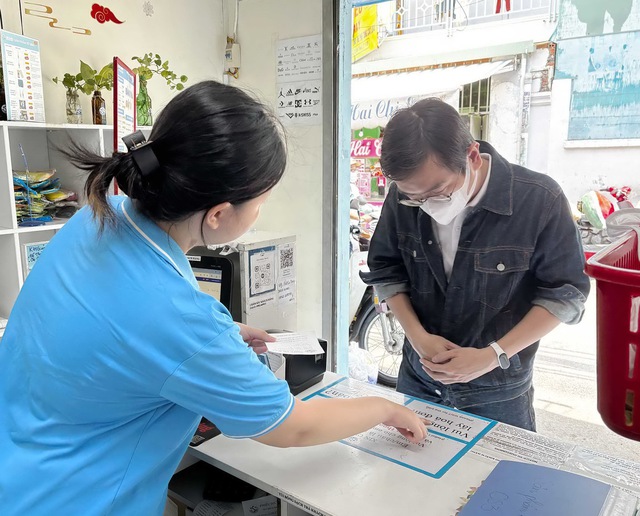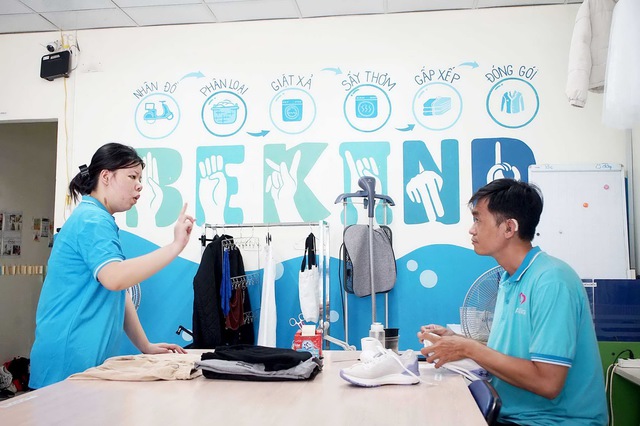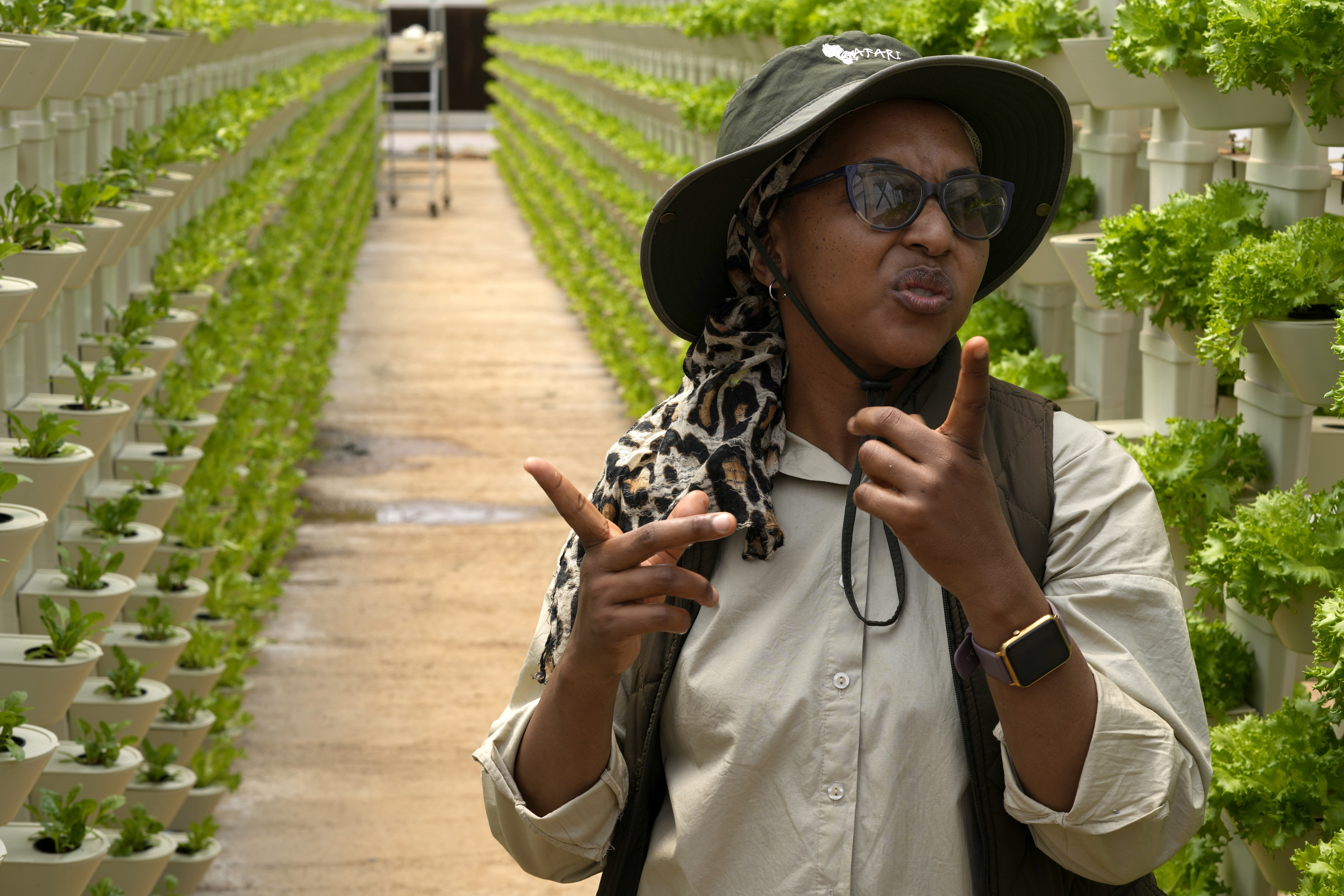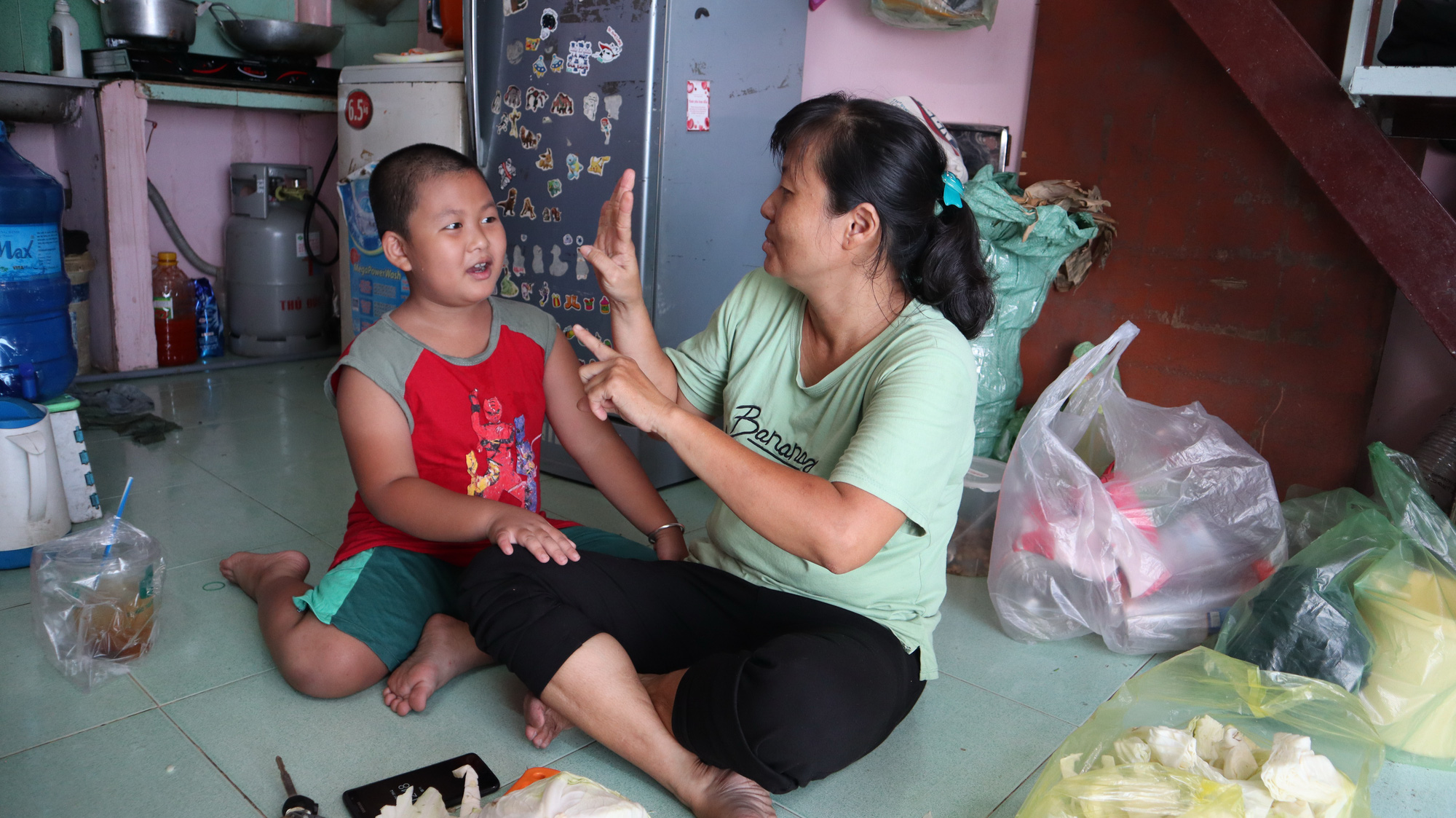
More than just clean clothes: Ho Chi Minh City laundry empowers deaf community
Giat La Sang, a laundry tucked away in Alley 117 on Nguyen Huu Canh Street in Binh Thanh District, Ho Chi Minh City, operates in serene silence, with its only sounds being the hum of washing machines, the spin of dryers, and the occasional ‘beep’ signaling a cycle is complete.

Common phrases taped on the counter at Giat La Sang, a laundry in Ho Chi Minh City’s Binh Thanh District, help facilitate communication between hearing-impaired staff and customers. Photo: Bao Tran
Seamless ‘silent’ workflow
Every morning, the shop opens early as staff tidy up and prepare for the day.
The team handles a steady flow of laundry, shoes, and stuffed toys.
“There are two staff members per shift, and we split the work ourselves," said 21-year-old Thao Nhi, who has worked at the shop for a year.
Throughout their shift, staff members remain focused.
One swiftly loads clothes into washing machines, folds finished items, and hangs up newly washed batches.
The other meticulously cleans shoes, carefully packages them, and arranges them neatly for customer pick-up.
They rarely speak. When necessary, they exchange quick hand signals, then return to work.
When a customer arrives, Nhi pauses only briefly.
She hands over a form for the customer to write down their request while she weighs the laundry.
The entire interaction from receiving the clothes to processing payment is handled wordlessly with pre-printed communication cards or written notes.
It takes just two minutes, but it runs smoothly.
Venture empowers deaf community
This efficient system is the result of months of planning by shop owner Luong Thi Kieu Thuy, 34, who spent six months learning the ins and outs of laundry work before opening her first shop.
Having lost most of her hearing since age 10, Thuy can still hear faint sounds thanks to a hearing aid, but she knew many in the deaf community were not so fortunate.
After spending time learning sign language and engaging with the deaf community, Thuy realized the systemic barriers they face, including unstable jobs, limited training, and scarce opportunities.
She believed that simply teaching them a trade would not guarantee a fulfilling life, so what she truly desired was to help them secure long-term employment.
“Many often think the deaf can’t work because they can’t communicate,” Thuy said.
“But if we create a smart model where they can work independently, they absolutely can succeed.”

Sign language in use at Giat La Sang, a laundry in Ho Chi Minh City’s Binh Thanh District. Photo: Be Hieu
Driven by the desire to improve the livelihoods of deaf people, she co-founded Giat La Sang in late 2020 in Hanoi with two friends.
Although her friends eventually left the venture after a few months, Thuy kept the shop running, determined to build a space where the deaf could thrive.
“Customers come not because we’re deaf, but because of the service quality and the care we put into it. That’s when we know it’s fair—and it pushes us to try harder,” Thuy said.
Over the years, Giat La Sang grew into a social enterprise with five branches across Hanoi, Ho Chi Minh City, and Dong Nai Province, employing 20 deaf individuals.
Most of the profits generated by Giat La Sang are reinvested into business expansion and life skills training.
Some employees stay, others move on, and Thuy supports both paths.
“Even if they don’t stay, it’s still a beginning for their future, she said.
One such story is Nguyen Le Tuan, 34, from Tan Phu District, Ho Chi Minh City, who has been working at Giat la Sang for almost six months.
Formerly a backhoe driver, Tuan found the laundry job at Giat La Sang on social media and trained for three months before joining.
“Since working here, life has become more meaningful. I meet more people, learn more lessons, and feel happy,” he said.
Minh Duy - Bao Tran - Be Hieu / Tuoi Tre News
Link nội dung: https://news.tuoitre.vn/more-than-just-clean-clothes-ho-chi-minh-city-laundry-empowers-deaf-community-103250624152434155.htm

